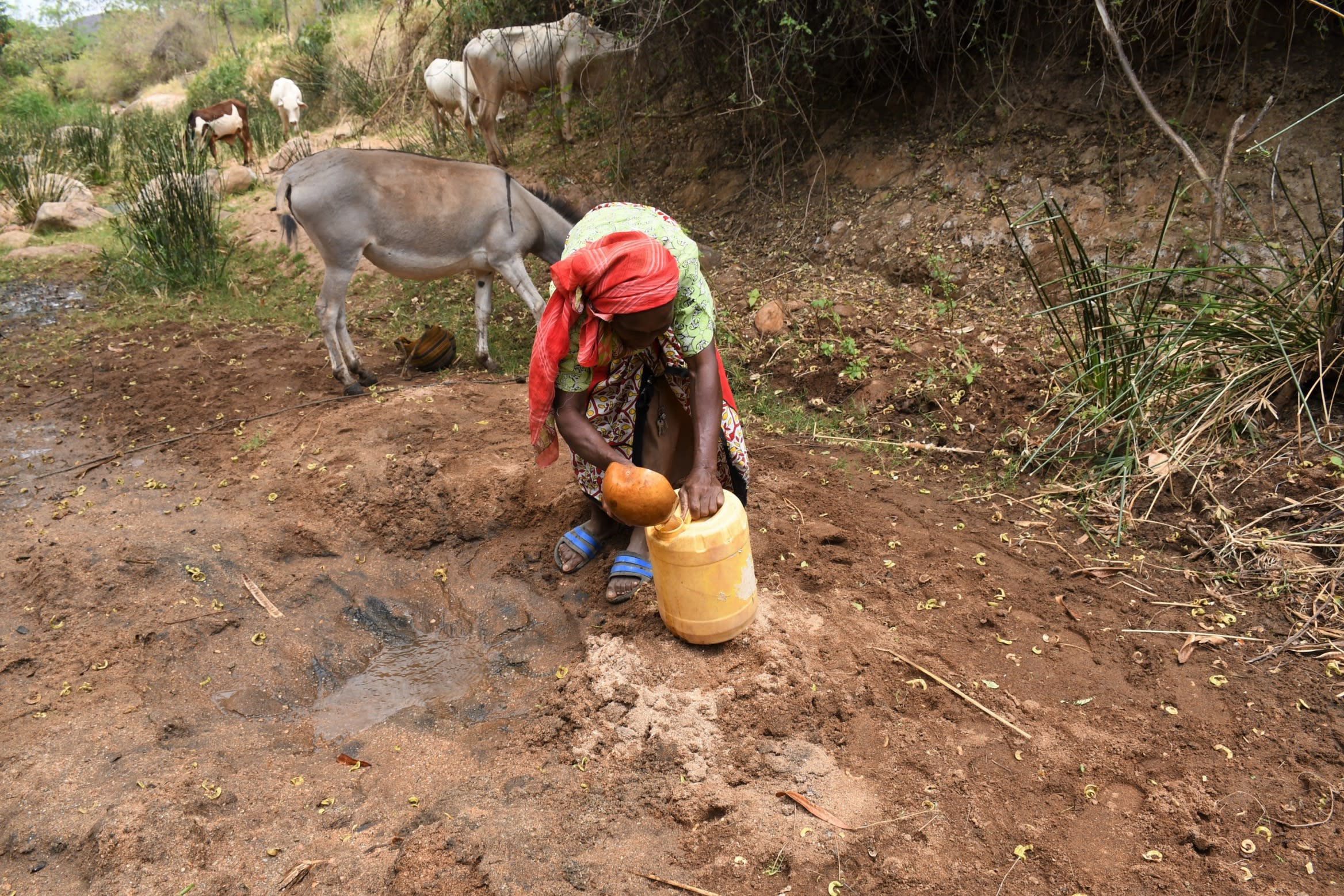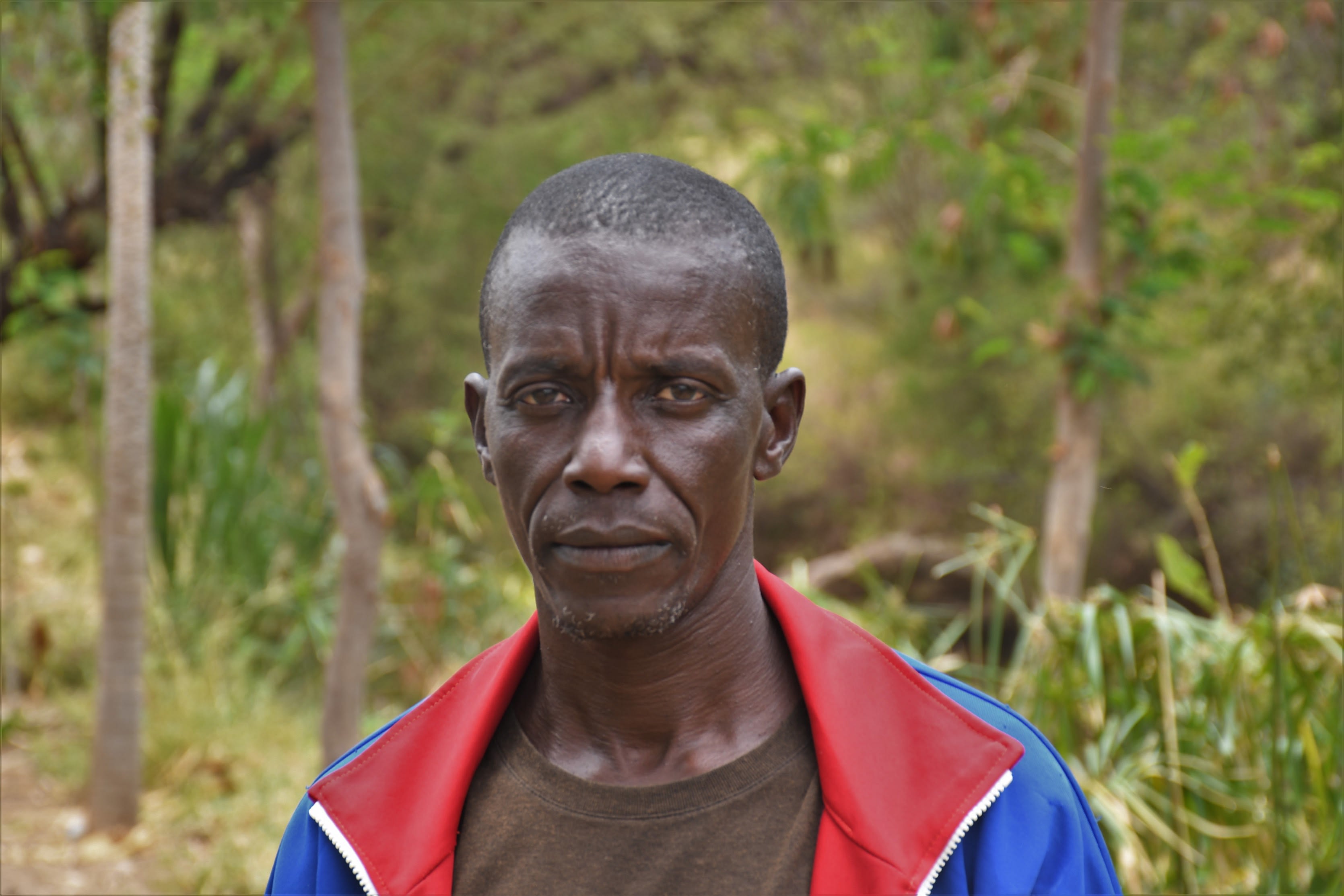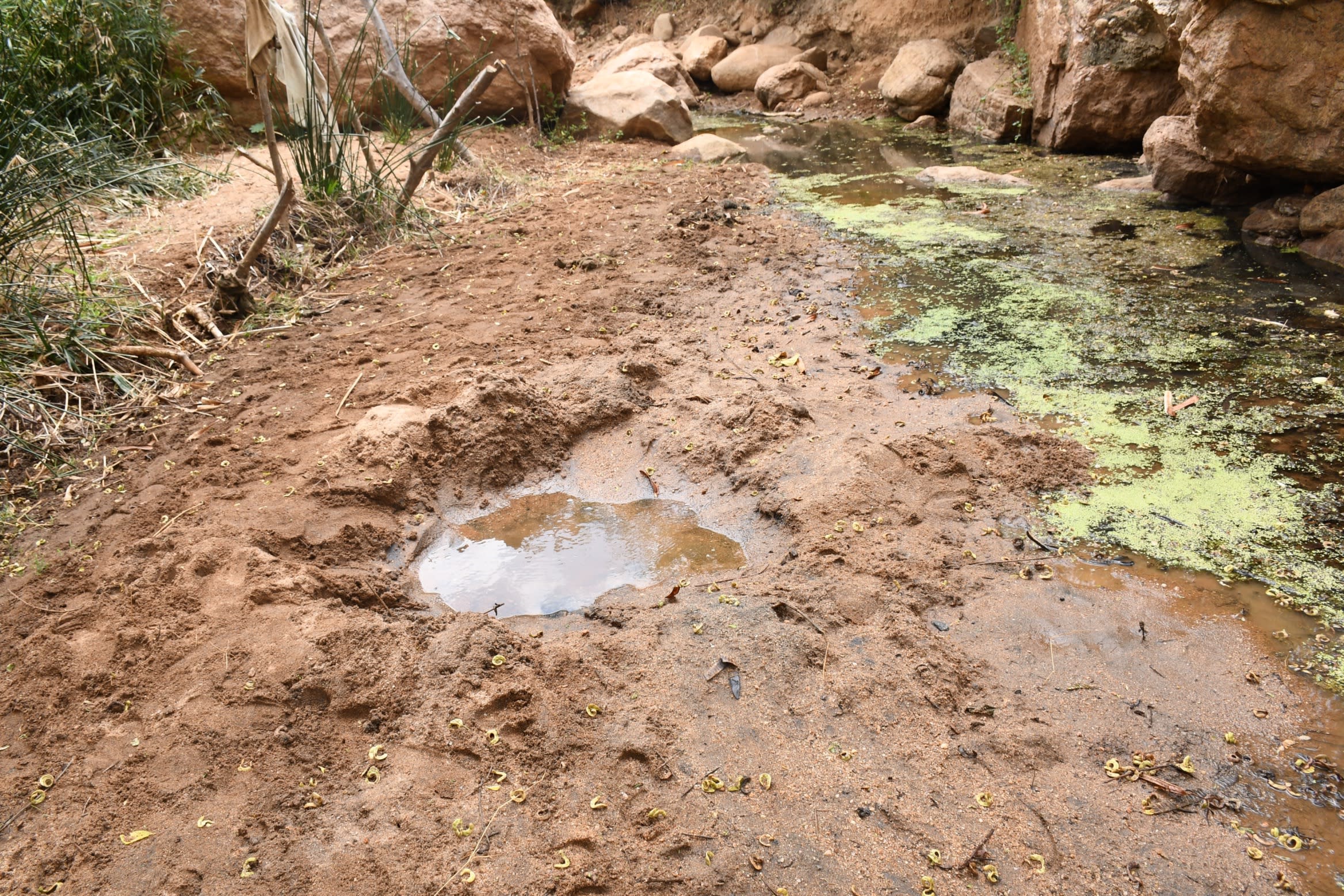The 500 community members of Kanyoeni do not have a nearby water source, so they must wake up early and walk several kilometers to collect water from scoop holes. People's shortest distance traveled is 2 km (1.24 miles). Some have to walk up to 10 km (6.21 miles), which amounts to a two-hour journey each way. Due to the long distance, community members typically only make one trip in the morning before attending to their daily responsibilities, like farming and caring for livestock. But to meet their water needs, most must return once more in the evening. It is exhausting and dangerous.

"I have to wake up early to acquire water for my family," said Ngai, a 47-year-old farmer. "I return home towards late afternoon, which leaves me tired and unable to fully concentrate on activities such as farming and other self-improvement activities."
 "I have no other option than to drink water from this water point that is mostly unsafe."
"I have no other option than to drink water from this water point that is mostly unsafe."
Aside from being far away, the water is also open to all forms of contamination. The scoop holes are surrounded by green vegetation: feeding grounds for cattle and goats. There are also footpaths across the scoop holes that residents and livestock use. Furthermore, there are trees in the area that birds perch on. Because of this, the people of Kanyoeni regularly suffer from typhoid, amoeba, dysentery, diarrhea, and more.

The hygiene and sanitation in the area are below average because of water scarcity. Most of the households do not have dish racks, garbage pits, and handwashing stations. They cannot maintain proper dental hygiene or body care due to the elusive water supply. Laundry cleaning is also an occasional affair due to water insufficiency.
The people of Kanyoeni demonstrate great unity in helping one another. They set up fundraising sessions for those parents who cannot pay school fees for their children. They come together for funerals and festivals, such as dowry payments and weddings. They recently came up with table banking to give a financial boost to needy members at a reasonable rate of interest. The residents are also Christians who have built several churches to cultivate their faith in a higher power.
Reliable Water for Kanyeoni
Our main entry point into Kanyoeni Community has been the Kyeni Kya Kanyoeni Self-Help Group, which comprises households working together to address water and food scarcity in their region. These members will be our hands and feet in constructing water projects and spreading the message of good hygiene and sanitation to everyone.
Hand-Dug Well
This particular hand-dug well will be built adjacent to a sand dam project, which will supply clean drinking water once it rains. We have provided the group with the tools needed for excavation. With the guidance of our artisans and mechanics, the excavated well will be cased, sealed with a well pad, and then finished with a new AfriDev pump.
Excavation takes a month or more on average, depending on the nature of the rock beneath. Construction of the well lining and installation of the pump takes 12 days maximum. The well will be lined with a concrete wall including perforations so that once it rains, water will filter in from the sand dam.
This well will bring clean water closer to families.
New Knowledge
These community members currently do their best to practice good hygiene and sanitation, but their severe lack of water has significantly hindered reaching their fullest potential.
We will hold hygiene and sanitation training sessions with the Self-Help Group and other community members to teach essential hygiene practices and daily habits to establish at the personal, household, and community level. This training will help to ensure that participants have the knowledge they need to make the most out of their new water point as soon as the water is flowing.
One of the most important topics we plan to cover is handling, storage, and water treatment. Having a clean water source will be extremely helpful, but it is useless if water gets contaminated when it is consumed. We will also emphasize the importance of handwashing.
The community and we firmly believe that all of these components will work together to improve living standards here, which will help to unlock the potential for these community members to live better, healthier lives.
We typically work with self-help groups for 3 to 5 years on multiple water projects. We will conduct follow-up visits and refresher training during this period and remain in contact with the group after all of the projects are completed to support their efforts to improve sanitation and hygiene.

 Protected Dug Well
Protected Dug Well
 Rehabilitation Project
Rehabilitation Project





























